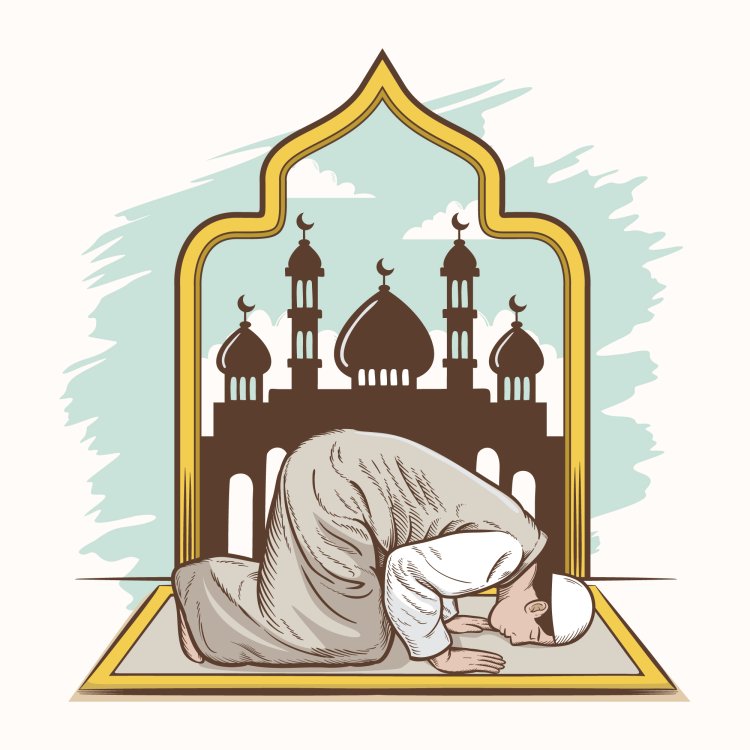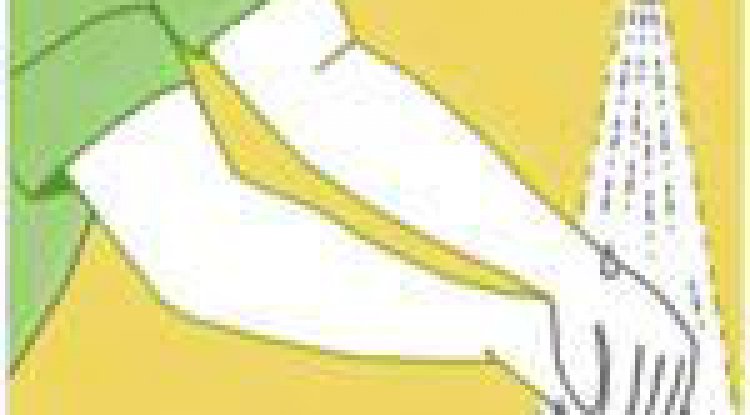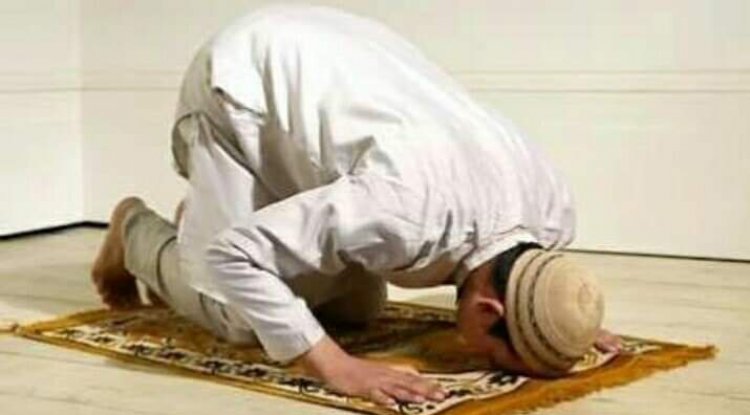brief introduction of salah, all you need to know about prayers in islam
what is salah, Definition of the word Salah, Importance of Salah, One who ignores the Salah, Benefits Advantages Fruits and Effects of Salah, Salah Timings and Units, Shortening Prayers, Performance of The Prayer By One Who Is Sick, Times When Performance of Voluntary Prayers areprohibited, How to perform the prayer, Types of Prayers, Jumaah Prayer (Friday Congregational Prayer)

Five Pillars of Islam:
Pillars of the Islam are five basic acts in Islam, considered obligatory by Muslims. These are summarized in the famous Hadith of Gabriel. The Qur'an presents them as a framework for worship and a sign of commitment to the faith. They are
- The Shahadah (Testimony)
- Salah (Prayer)
- Sawm (Fasting during Ramadan)
- Zakah (Almsgiving) and
- Hajj (Pilgrimage to Mecca) at least once in a lifetime.
Shahadah:
Shahadah(شهادة)is a saying professing monotheism and accepting Muhammad as God's messenger. The shahadahis a set statement normally recited in Arabic:
أشهد أن لا إله إلا الله وأشهد أن محمدا رسول الله
I profess that there is no god butAllah and I profess that Muhammad is the Messenger of Allah.When a person wishes to convert religions they should recite this affirmation and believe in it.
Salah:
Salahis the Islamic prayer. Salahconsists of five daily prayers. All of these prayers are recited while facing the Ka'bah in Mecca. Muslims must wash themselves before prayer, this washing is called Wudu. The prayer is accompanied by a series of set positions including; bowing with hands on knees, standing, prostrating and sitting in a special position (not on the heels, nor on the buttocks, with thetoes pointing away from Mecca), usually with one foot tucked under the body.
Definition of the word Salah:
Linguistic Definition:Du’aa or supplication
Technical Definition:Type of worship consisting of specificstatements and actions. It begins bypronouncing the greatness of Allah (Takbir)and ends with salutations of peace (Tasleem).
Importance of Salah:
- Salah is the most important pillar of Islam after the testimony of faith. The Prophet said, “The head of the matter is Islam, its pillar is the prayer, and thetop of its hump is Jihad in the way of Allah.” [SahihMuslim]
- Prayer was the first act of worship made obligatory by Allah. Itsobligation was revealed directly to the Prophet during his ascensionto heaven.Anas said, “The prayers were made obligatory on the Prophet the night of hisascension to heaven. At first they were fifty in number, but were reduced severaltimes until they were five. Then it was proclaimed, ‘O Mohammed, the order isnot changed. These five are (equivalent to) the fifty.” [SunanTirmidhi]
- Prayer is the first act that we will be accountable forAbdullah ibnQart related that the Messenger of Allah said, “The first act that theslave will be accountable for on the Day of Judgment will be prayer. If it is good,then the rest of his acts will be good. And if it is evil, then the rest of his acts willbe evil.” [Tabarani]
- Salah was the last thing the Prophet (SAW)recommended to his nation before he died“Prayer, prayer, and what your right hand possesses.” [MusnadAhmad]
- The Prophet (peace be upon him), said: “Order your children to pray when they reach the age of seven and punish them for not performing it at the age of ten and separate them (ie. boys and girls) in their beds”(SahihBukhari).
One who ignores the Salah:
Not praying and denying its obligation is seen as disbelief andplaces the person outside the fold of Islam. Jabir reports that the Prophet said, “Between a person and disbelief isdiscarding prayer.” [SahihMuslim]. Abdullah ibnAmribn al-Aas reported that the Prophet one day mentionedthe prayer and said, “Whoever guards and observes his prayer, they will bea light and a proof and a savior for him on the Day of Resurrection.Whoever does not guard and observe them, they will not be a light or aproof or a savior for him. On the Day of Resurrection, he will be withQarun, Firaun, Haman and UbayyibnKhalf.” [MusnadAhmad]
Benefits, Advantages, Fruits and Effects of Salah:
- Ease and comfort: like what is in his (SAW) statement to Bilal (RA), “Give us ease and comfort O Bilal with the prayer” [Musnad Ahmad].
- Delight of one’s eye: just as what is in his (SAW) statement, “The delight of my eye has been made in the prayer” [Musnad Ahmad].
- Abstain from evil: It keeps one who performs it far from falsehood and from all forbidden actions as is categorically confirmed by the following verse of the Holy Qur'an:“ Verily, prayer refrains from indecency and evil”(Qur'an 29:45).
- Time Management:Salah helps in instilling and developing good time management skills in the Muslims. As they have to offer the prayers on their specified times, they have to schedule the rest of their day to day activities accordingly.
- Early to bed, Early to Rise: Since the Fajr or Morning prayers are required to be said at the break of dawn, Muslims have to get up early. For which, they make sure they sleep early. It ensures a healthy habit of early to bed, early to rise.
- Cleanliness:It ensures that a Muslim stays clean at all times.
- Unity:Salah also brings unity among the Muslims as they have to face the ka'aba while saying the prayers.
- Social Life: It helps the Muslims in connecting with each other, as they get together five times a day in the mosque.
- Equality:Salah improves social harmony and equality.
Wudu (Ablution):
Prior to entering Salah, the person is required to undertake a certain purificationprocedure known as "Wudu" without which, the person's prayer would not beacceptable in the sight of Allah (SWT). The Prophet (peace be upon him), said:“Prayer without ablution is invalid”(Sahih Muslim).
Ghusl (Bathing):
Its legitimacy is embodied in the Holy Qur'an as follows:“And if ye are in a state ofceremonial impurity, bathe your whole body”(Qur'an 5:6).There are two essential requirements which need to be fulfilled for Ghusl to bevalid. These are as follows:
- Intention to perform Ghusl is necessary because it is the dividing line between actsperformed as a mere custom and deeds which are reward-able acts of worship. However,the intention is only by heart and need not be uttered.
- The entire body should be washed. Water should reach and flow freely over every partof the body.
Tayammum (Ablution Using the Soil):
Tayammum is a means of using the soil to wipe one's face and hands withthe intention of preparing oneself to perform prayer. The Prophet (peace be upon him), also said:“All of the earth has been made apure place of prayer for me and my Ummah (Nation). Whenever a person from mynation wants to pray, he has something with which to purify himself ... that is theearth.”(Musnad Ahmad).
Adhaan (Call to Prayer):The "Adhaan" is a call to inform others in specific words that the time for aparticular prayer has begun. It is a call to the congregation and is an expression of theIslamic practice. It is required as an act for all the Obligatory Prayers.
Salah Timings and Units:
- FAJR (Dawn) PRAYER:Its time begins at dawn when morning light first appears inthe horizon and continues until the sun rises. (2 + 2)
- DHUHR (Noon) PRAYER:Its time begins when the sun reaches its highest point inthe sky and continues up to the time of Asr Prayer. (4 + 4 + 2)
- ASR (Afternoon) PRAYER:Its time begins when the shadow of an object is equal toits own length, plus the length of its noontime shadow and continues until sunset. (2/4 + 4)
- MAGHRIB (Sunset) PRAYER:Its time starts from sunset and continues until the endof twilight. Twilight is the redness which remains in the horizon after sunset.(3 + 2)
- ISHA (Evening) PRAYER:Its time starts when the twilight disappears and continuesup to mid-night. Mid-night in this case may not necessarily be interpreted to mean 12:00o'clock but may be construed as the mid-time between sunset and the appearance of thetrue dawn.(2/4 + 4 + 2 +3)
Shortening Prayers:
If you are traveling, then you should shorten the 4 Rak'ahprayer to a 2 Rak'ahprayer (Dhuhr, Asr, and Isha'). Also Dhuhrand Asrcan be prayed right after each other, as well as, Maghriband Isha'.
Performance of The Prayer By One Who Is Sick:
A sick person has to perform the prayer in accordance with the person'sconditions. The Prophet (peace be upon him) was once asked by a sick companion as to how he can perform the prayer and the Prophet (peace be upon him) replied him as follows: “Pray standing but if unable then by sitting and if still unable then do sowhilst on your back”(SahihBukhari).
Times When Performance of Voluntary Prayers areprohibited:
There are certain times when voluntary prayers are not allowed to be performedand these are as follows:
- In between the Fajr Prayer and the rising of the sun.
- During rising of the sun.
- In between when the sun is close to its zenith
- In between the Asr Prayer and until sunset.
- During sunset.
How to perform the prayer:
- Facing the Qiblah:
- Intention:
- The Opening Takbir:
- Placing the right hand above the left hand:
- Qiyam (Standing):
- Reciting Fatihah and Quran:
- Ruku (Bowing):
- Qawma and Etidal (Straightening up):
- Sajdah (Prostration):
- Jalsah (Sitting between two Sajdahs):
- Sajdah (Prostration):
- Tashahhud (Sitting):
- Salam(Ending the Prayer):
Types of Prayers:
- Fard (Obligatory) Prayers:
- Sunnah (Non Obligatory) Prayers:
- Janaza (Funeral) Prayer:
- Jumah (Friday) Prayer:
- Eid Prayers:
- Istisqa (Rain Seeking) Prayer:
- Kasuf and Khasuf(Eclipse) Prayer:
- Istikharah (to seek Allah’s guidance) Prayer:
- Tahajjud (Late Night) Prayer:
- Taraweeh (Ramazan) Prayer:
- Witr (Odd Number) Prayer:
Juma'h Prayer (Friday Congregational Prayer):
Besides the five obligatory prayers, Allah has also ordainedthe "Jumah" as a necessary prayer on the Muslim Nation. The Prophet (peace be upon him) also, in exhorting the Muslims to theimportance of the Friday prayer said: “They (people) will have to stop neglecting theFriday prayer or otherwise, Allah will seal their hearts and theywill be counted among the negligent”(Sahih Muslim).
What's Your Reaction?





















